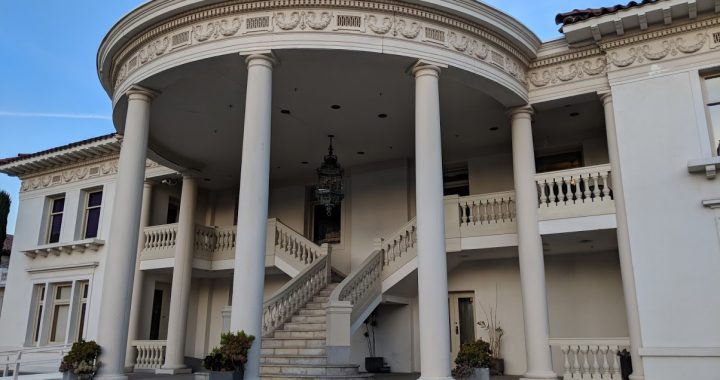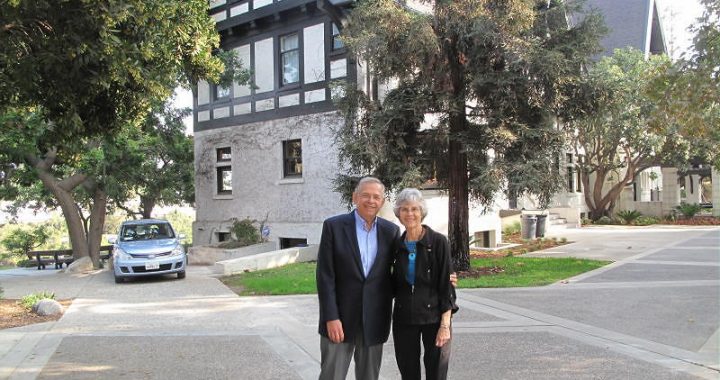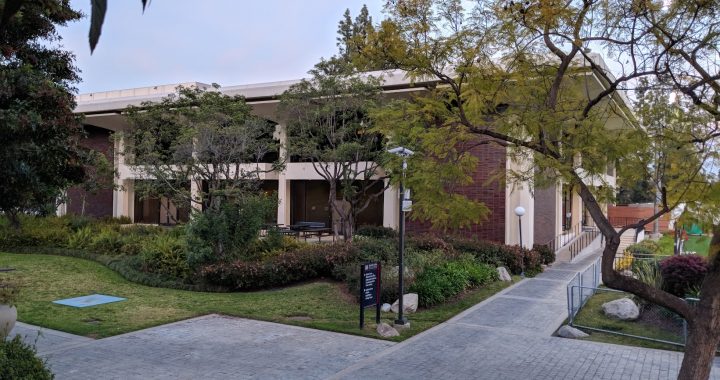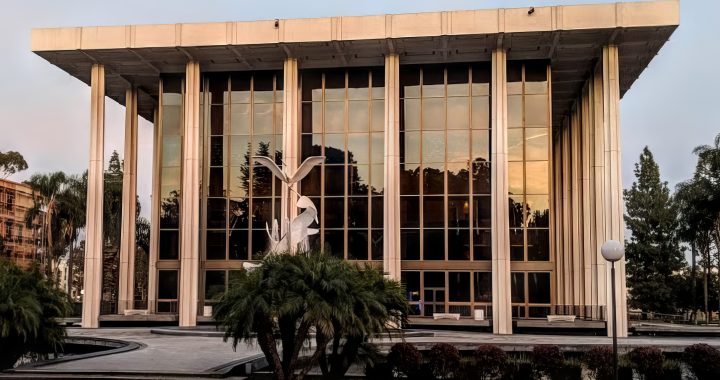The Genesis of the United Church of God
A Personal View from Ground Zero
See previous chapters 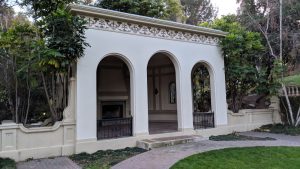
As 1994 drew to a close, so too did the scope and doctrinal structure of the Worldwide Church of God as we had known it. Previously clumsy efforts to overturn long-established beliefs were now out in the open, and global turmoil boiled toward a destructive crescendo in all parts of the church.
Today, when one walks or drives around the former “city on a hill” in Pasadena, little remains of the once-concerted global commitment to preach the Gospel and recapture true values, including the “faith once delivered” (Jude 1:3). Even the stately Hall of Administration, the site of many executive decisions, was completely flattened and replaced by expensive residences. The former church and college properties are all sold off, many totally scraped and replaced by multi-story condominiums.
Relentless betrayal
This devastating act of betrayal of multiple thousands of members and ministers was ironically made possible by an unforeseen fatal flaw. As I wrote in chapter one of this series, one of the chief reasons that the demolition of the prior organization was even possible was attributable to one factor: the intense concentration of legal power and physical authority in a single person. As one of the organizers and leaders of the dramatic theological and organizational turmoil later admitted in print, the very autocratic – and previously criticized – power that had ostensibly led to the changes was now deployed again.
Was that act of force-fed change ethical? Even outsiders saw the astonishing discrepancy. As one British researcher later wrote of the devastating and misguided focus in the WCG: “By analogy, if the Archbishop of Canterbury became a Roman Catholic, one would expect him to leave the Church of England, rather than to try and take the entire Church with Him into Catholicism” (emphasis added).
But that didn’t happen. The devastating outcome, including financial and spiritual collapse, was later referred to many as “the holocaust years.”
As I pick up the story, eight years have now passed since the death of Herbert Armstrong in 1986. The end of 1994 was marked by a series of pivotal events, one of which unfolded on December 17. Pastor General Joseph W. Tkach, HWA’s successor, was personally intervening to quench a roaring organizational fire. Aboard the Church’s BA1-11 jet, Mr. Tkach flew across the United States to Atlanta, planning to address assembled congregations there.
Domineering leadership fractures
Why was Mr. Tkach making this effort? Earl Williams, the main pastor in the area, was a commanding presence—both in stature and in personality. His forceful style, coupled with a booming voice, often intimidated his congregants. Over time, numerous complaints about his leadership style surfaced, ranging from mild irritation to outright outrage.
To try and heal the emerging fractures, I traveled to Atlanta twice, including one trip with Dennis Luker, who as a former senior leader within Church Administration and an experienced long-time minister, was well-acquainted with resolving leadership issues equitably. We attempted to address these concerns. Williams was a gifted speaker and writer, respected within the African American community. But his approach frequently overstepped the bounds of pastoral decorum and caused division.
Sadly, despite our good intentions, Earl was not particularly receptive to my visits. We spent many hours discussing some of his pastoral approaches and their divisive tendencies, but we seemingly got nowhere. In fact, by the time my return flight to Los Angeles had landed, he had already called Joe Tkach Jr.,(my direct report in Church Administration) to lodge his complaints about me.
As broader tensions within the Church escalated over doctrinal changes, Williams adeptly identified who stood where on the theological divide. He quickly aligned himself with the emerging new doctrines, even going so far as to actively preach them before they had been officially sanctioned.
This caused grievous issues, leaving Church members wondering what was going on. Trust was quickly evaporating. Rather than being reprimanded for what he was teaching, Williams was only cautioned for jumping ahead of the official announcements. Things were heating up and getting very serious.
Shortly before an upcoming December 1994 trip to Atlanta, Mr. Tkach called me into his 4th floor executive office. He wanted to discuss how to handle the visit. Given my prior experience with Williams, I shared what Denny Luker and I had discussed with him during our earlier meetings.
I openly outlined what I knew of Williams’ teachings, but Mr. Tkach didn’t seem particularly interested or concerned about that. He was more interested in the dynamics of the situation. It was an unusual briefing.
Planning continued for the trip to Atlanta, and Mr. Tkach and his entourage departed to address the combined congregations. But what happened next took a historic, unexpected, and bizarre turn.
Tale of Two Sermons
Known to me and a few others outside of the small circle of administrators, Mr. Tkach was torn between two sermons set before him for delivery to the Atlanta churches. Both the sermon subjects pertained to the Law of God. But each approached it from completely opposite perspectives. One emphasized upholding God's law as revealed throughout the Bible, focusing on adherence to the Ten Commandments, the observance of the Saturday Sabbath, and, by extension, the seven Annual Holy Days. Central to this view is Jesus' statement: "If you love me, keep my commandments" (John 14:15).
Traditional Gospel – Christ didn’t abolish the Law
Jesus’ words in Matthew 5:17 reassure us of His deep reverence for God's law and His purpose in fulfilling it: "Do not think that I have come to abolish the Law or the Prophets; I have not come to abolish them but to fulfill them."
Our understanding was this: with great love and wisdom, Jesus did not set aside the teachings of the Law and the Prophets but instead brought them to their fullest expression. His life, ministry, and sacrificial death fulfilled the Old Testament's requirements and promises, showing us how God's plan of redemption was always leading to Him. Through His fulfillment of the Law, Jesus taught that righteousness is not merely about outward actions but about the transformation of our hearts.
In His Sermon on the Mount, He called His followers to live by the spirit of the Law, emphasizing love, mercy, and sincere devotion to God. Rather than discarding what was given before, Jesus completed its purpose, guiding believers toward a faith that goes beyond rule-keeping and into a spiritual relationship with God. His teachings invite us to embrace a righteousness that flows from a heart aligned with God's will, rooted in love and grace.
For decades, the Worldwide Church of God had embraced and understood what the Apostle Paul affirmed, "the law is holy, and the commandment is holy and righteous and good" (Romans 7:12). This implies a powerful spiritual relationship with God, based in spirit and truth (John 4:24), whose foundation is the revealed law, which defines godly conduct.
The pivotal moment
In contrast, the other sermon openly embraced the divisive doctrinal changes that engulfed the Church, emphasizing salvation through grace and faith while asserting that the Mosaic law, including the Ten Commandments, is no longer binding for Christians. This view summarily asserted that the law is impossible to keep and that Christ has fulfilled it on our behalf, liberating believers from its obligations and other Old Testament requirements.
This view minimized the first four commandments, rejecting outright the commanded seventh day of worship. In effect, the second sermon steered WCG members away from the 1st century established practices of keeping the Sabbath and Holy Days, and instead toward principles from the 2nd and 3rd century Hellenized and allegorical views of Origen and other later theological philosophers. Traditional beliefs concerning tithing and the food laws were also out the window.
On the eve of delivery, Mr. Tkach Sr. agonized about which sermon to give. He finally decided.
He made the fateful and far-reaching decision to choose the latter sermon for Atlanta on December 17, 1994. In that moment, the demise of the once-influential Worldwide Church of God was guaranteed. For unsuspecting thousands of members, this day was an unforeseen watershed moment, powerfully signaling to the ministry and membership that the church was officially rejecting its traditional interpretations of the law and doctrines of God.
No turning back
That night, my phone exploded with calls from pastors, who gave me a rundown of what was publicly said that day. I grimaced inwardly, as I knew that there was now no turning back. This was a signaling beacon warning that further doctrinal downhill sliding was inevitable. This was not “refining” our previous understanding as once capriciously stated. It was overturning it toward destruction.
On December 17, a public dividing wedge was explicitly driven into the heart of the WCG, splintering open the trust and stability of faith in members and ministers alike. Shattered like pieces of mere wood, members flew in multiple directions. Tragically, shorn of faith and trust, many betrayed members would ultimately abandon belief altogether.
For Bev and me, as well as many people, it was a day of profound sadness to see the human leader of our church organization so ambivalent about our core teachings and anchors of our faith and, in an ex cathedra fashion, throw them into a theological trash bin. There was no collaborative discussion. This kind of abusive control by an autocratic Pastor General was one of the key motivating reasons for movement toward the founding of what became the United Church of God.
More devastating shifts
The next Sabbath, December 24, 1994 Mr. Tkach flew to the Texas campus of Ambassador College, where he spoke to the regional assembled congregations in Big Sandy. I was there in person for this presentation and witnessed the doctrinal onslaught firsthand.
Word had already widely spread about the diminishing emphasis on God’s Law and traditional teachings from the previous Atlanta sermon by the Pastor General. The very foundation of the Church was cracking. A tense anticipation gripped people who wondered what would come next.
Before the service, the song leader, Larry Neff, called me and asked if I would give the closing prayer. He pleaded with me to accept, explaining that he had already asked two others who had declined.
Why is that role important, especially to any one not familiar with Church of God services? In our tradition, the closing prayer of a church service plays an important function. As church members remain standing and pause with heads bowed after singing the final hymn, the prayer typically includes an emphatic request to God that the spiritual principles we had just heard be taken seriously and implemented in our daily lives. In effect, the closing prayer can summarily seal the Sabbath message with a spiritual imprimatur to go and do likewise.
Many ministers knew the divisive potential of what was going to be espoused by the Pastor General and ethically wanted nothing to do with it. Knowing the bind that Larry was in, I reluctantly agreed to offer the closing prayer.
As expected, during the sermon, Mr. Tkach reiterated principles from his disastrous Atlanta sermon, speaking about newfound "liberties" members could take on the Sabbath. Unexpectedly, he said that members could even play a round of golf, an act that was completely foreign to our traditional teaching.
Here's the standard that we had long taught directly from the Word of God: “If you turn away your foot from the Sabbath, from doing your pleasure on My holy day, and call the Sabbath a delight, the holy day of the Lord honorable, and shall honor Him, not doing your own ways, nor finding your own pleasure, nor speaking your own words, Then you shall delight yourself in the Lord” (Isaiah 58:13-14, NKJV).
As Mr. Tkach’s sermon wrapped up, many were aghast. We knew that this was not going to end well for the church organization we once experienced and had committed to.
When it came time for my closing prayer, I carefully chose my words. I first thanked God for His truth, for our lives, and for His law—specifically mentioning the Sabbath. I did not refer to the speaker. Those who heard that knew where I stood, even as I was respectful of the solemnity of the church service.
Mr. Tkach’s Big Sandy sermon was recorded and then sent to all congregations to be presented as the main message on a coming Sabbath, though the golf section was conspicuously edited out. While it represented exactly what he said, the golf comment was deemed potentially egregious to members already suspicious, even overwhelmed by theological cacophony.
It seemed necessary by upper leadership to string the Church along carefully, even though some had humanly and callously prophesied that eventually upwards of half the church membership would depart once the changes were fully implemented (it would actually be much more). This Big Sandy message came to be known in many circles as the infamous “Christmas Eve Golf Sermon.”
Events hyping the new teachings appeared on a regular basis. Tensions were mounting, even though leadership seemed stunningly oblivious. As did many others, Bev and I wondered where exactly the end of this would be.
In the following month of January 1995, Church Administration hosted a regional ministerial conference for the Southwest U.S. ministry in Santa Barbara, California. As part of our growing relationship with the Church of God (Seventh Day) over the past few years, we invited several of their leaders to join us. This was particularly significant since Herbert W. Armstrong had originally been an elder in the COG7. They had previously welcomed us to their conferences, and we were happy to reciprocate.
The conference began with an address from the Pastor General, Joseph Tkach. Those of us in the administration sat in the front row as he spoke at length about the sweeping changes taking place in the Church. He described the trashing of established core doctrines as somehow “liberating.” His message was energetically delivered, and the ministry was expected to applaud for the Pastor General and message, denoting approval of its content.
A personal dilemma
Personally, I and many others found this difficult. The expectation of approval expressed by applause seemed straight out of the propaganda playbook of Soviet dictator Joseph Stalin. I respected and even once loved Mr. Tkach as our human leader, given all the history I shared with him and his family.
But I could not accept what he was doing to the Church. I wrestled with an internal dilemma: Should I applaud and appear complicit in something that troubled me? Or should I withhold my applause and be branded as a divisive enemy?
Bev and I were in a vulnerable position, fully exposed. In the end, we choked down our feelings and managed a civil, lightly tentative gesture—more out of politeness than anything genuine. It was obvious to those around us where we stood. But I felt ill. On numerous prior occasions, Mr. Tkach had publicly joked that “he who takes king’s shekels must also do his bidding.” The joke value had faded for many of us.
At the conference, we in the Administration presented our talks to the ministry. Most attendees carefully navigated around the "elephant in the room"—the same underlying tension that the Regional Pastors had faced at their conferences, and that I discussed in my previous chapter.
A disturbing flip
One of the presenters was Ron Kelly, a minister, teacher, pastor, and author. He had served as one of the four hosts of The World Tomorrow TV program, back when it was a top-ranked weekly program reaching multiple millions of people. He had authored a deeply researched sweeping work on the history of Europe and the church, and had served as a senior writer for The Plain Truth magazine when it had a circulation in excess of six million.
Initially, he strongly defended the beliefs we had all been taught, both in doctrinal meetings and in written discussions. His wife, Norva, was even more openly unwavering in her commitment to our faith.
Mr. Kelly was set to deliver a lecture about the dangers of "drawing a line in the sand" about our beliefs. His message was highly relevant to what we were experiencing. He suggested that we might accept some of the new teachings under the guise of “growth in understanding” or similar reasoning.
While I believed in deepening our understanding, making it relevant to our times, and continuously striving for improvement, I was firmly against compromising to the point of discarding God’s Law.
He had spoken to me about his message before, having delivered it a few times to other ministers. He firmly believed that each of us had the right to establish firm boundaries—lines we would not cross if they conflicted with our core beliefs. In life, he argued, we must hold to fixed points of truth and stand by them or be subject to losing what we have.
During lunch, as we moved through the buffet line, Norva turned to me with tears and exclaimed, “What are they doing to our Church?!” She was heartbroken and angry at those who seemed indifferent to what she felt so deeply. He emphasized that he planned to highlight certain "stop point” boundaries that should not be crossed. I was encouraged.
However, when it came time for his lecture after lunch, Mr. Kelly had unexpectedly completed a total mental and theological 180-degree turn. To my shock, he abandoned his earlier stance. Instead, he stated—plainly and without reservation—that we should not draw lines in the sand for what we believe but should always allow our minds to remain open.
As Ron spoke, people were uncomfortably putting two and two together and saw this as another technique to move us from what we believed toward something we were convinced was not right. It was cognitive dissonance of the first order.
We already had the doctrine of the Trinity dropped on us. Then the change and virtual abolition of the Sabbath. As I listened in shock, he was telling us now not to resist. This was not the time for such a declaration, especially when dealing with people's deeply held beliefs about right and wrong in the current crisis of conscience. This was not merely a question of gaining greater knowledge—it was a question of truth versus error, good versus evil, a question of spiritual life or death.
Change, Adapt or Perish
At the end of 1994 and the start of 1995 spiritual dissonance was high. Speakers preparing for sermons were reaching for teaching tools to navigate, explain, make sense of, or even duck the new teachings. Some were exploring compartmentalized strategies of conscience to somehow continue working at HQ, teach the new teachings, and simultaneously remain true to the belief they knew were true. More cognitive dissonance to survive.
Ironically, an allowance for a “grace period” emerged for keeping the “old” Sabbath and the Feast of Tabernacles. A false sense of security and quasi-tolerance was offered to our “unenlightened” ministers who had not snapped to the new theology.
Some felt the grace period would be indefinite, but the truth was that depending on where and who you were, there was ultimately a “there is no future for you here” verdict handed down. Once that point was reached, if a minister dared to publicly state disapproval of the new teachings, they were terminated—and that was already beginning to happen.
One minister openly said he learned to compartmentalize his beliefs so that he could believe both ends of the spectrum simultaneously—quite a feat in mental gymnastics, where one can supposedly embrace a three-headed hypostasis doctrine by day while at work and a traditional understanding of Father and Son by night for one’s family. Some insisted on attending services, hearing their pastor preach the new theology, and then coming home to tell the family what was wrong and what was the truth.
Here, I would like to relate a number of direct experiences with senior administrators and ministers, many of whom are familiar to long-time members. These experiences reveal additional perspectives, which are important to remember, especially for those who were not part of the church in those days.
Dr. Hoeh’s background
Herman L. Hoeh, Plain Truth magazine editor, Ambassador College Professor as well as long-time influential minister, held a reputation for explaining difficult theological topics. During this time Dr. Hoeh presented a most unusual abstract of a sermon opining God’s Oneness and somehow how God the Father was the “Thinker” and Christ was the “Thought.” It only further confused an already confused issue of the emerging Trinity issues and evoked sarcasm.
This greatly bothered me. Dr. Hoeh and other academicians once had been pillars in the Church, people who would honestly teach the truth (Dr. Hoeh himself was the author or a principal editor of many core church booklets and doctrinal statements – including the direct creation, editing, and publishing of the Mystery of the Ages full-length book prior to the death of Mr. Armstrong). He and others were now treated as useful commodities to push ideologies forward.
Many people followed Dr. Hoeh because he was brilliant, and his sermons generally were insightful. People were curious about how Dr. Hoeh was taking to all this upheaval. In my dealing with him, he was negative towards the approach, content, and outcome. But he chose to stay the course within the Church that he had known and helped build since 1947, even though it was careening off course to a position directly opposite his own teachings.
Dean Blackwell changes course
Some tried to put up a fight. Dean Blackwell occupied an office close to me. With his deep field and teaching experience, he was a welcome influence in mentoring our generation of ministers.
His job was continually visiting ministers in the field and providing personal support to many, including those who formerly were his students at Ambassador College. He dearly loved these men and their families who he called his “Texas sons” and was always supportive of a minister’s career challenges and improving their service to members.
Not only did he encourage and support our ministry, he regularly spoke to congregations around the country, offering encouragement and insight to members. He had a passion for collecting rare books and had built a formidable library on church history and theology.
Often he would present gifts to students and employees of rare and meaningful books with personalized inscriptions. I was privileged to be included in this. We got along very well in the office as we coordinated his ministerial visits.
To be certain, he was very upset with the Pastor General. After all, at one time Joe Tkach Sr. was a member in Chicago when Dean Blackwell served as his pastor. He told me repeatedly that he planned to march into Mr. Tkach’s 4th floor office and tell him straight where he was wrong. It never happened.
On one occasion, when Bev and I were driving with Mr. Blackwell and his wife Maxine from Dallas/Ft. Worth Airport to Big Sandy, he spoke at length about the travesty occurring in the Church, the tearing down of so much that we understood as biblically sound and accurate. He told us again that he was planning to talk to Mr. Tkach directly.
When we arrived at Big Sandy for the ministerial conference, Dean was asked to give the opening prayer. In it, he praised the Church's leadership for their courage and insight into new truths, meaning the controversial new theology. Once again, Bev and I were stunned! Just hours before, he had decried what was happening. Now, he was praising it. It was a bizarre phenomenon, repeated far too often.
John Halford objects
Then there was John Halford, whom many knew from Ambassador Foundation international projects and his work in the Ambassador TV department. John was quite a colorful personality. He was witty, full of humor, and fun to be around. Through his world travels, he fostered deep relationships and empathy for people of all nations. This strongly came out in his articles and sermons, which were popular and insightful.
As noted in an earlier chapter, John and another prominent church historian had delved deeply into the theology and veracity of the Church’s beliefs and perspectives on ancient Israel, the 10 lost tribes, and possible relationships tied to the United Kingdom and the United States. That fresh work sank from view and consideration as the force-fed new truth marched relentlessly onward.
John and I struck up a friendship, and he often came up the elevator to my office from his second-story office in the Hall of Administration. He was initially incensed by what was happening in the Church and what Joe and Mike were doing. He had many witty expressions about events and designated those who objected to the changes as those from “HindQuarters.” This brought a welcome laugh in times when dark or gallows humor let off steam.
He often probed to see what was going on and what was happening in Church Administration. He began to loudly tell me: “If you and the Regional Pastors don’t stand up to this, who will?!”
Interestingly, when the Regional Pastors gathered to establish the United Church of God a few months later in Indianapolis, he was absent. He then wrote me a puzzling email stating: “Don’t start anything! Don’t you know you will be ostracized?”
By then, I was beyond being “ostracized.” Bev and I were affirming our commitment.
A visit with Denny and LeeAnn Luker
On one occasion early in 1995, John and his wife Pat, Dr. Hoeh, and me with Bev drove down to visit Denny and LeeAnn Luker in Irvine, California, about an hour away.
Denny and LeeAnn were sorely troubled by the heresy sweeping our Church. We were beginning to talk about where to go from where we were. We had no appetite for the constant barrage of hostile actions and how this affected the Church.
Over time I found that some people would talk the talk, but when it came time to make a stand for the faith once delivered, some wilted away for whatever reason. Denny and LeeAnn were definitely not in that latter category.
Frank Brown weighs in
Another person who stayed in touch was Frank Brown, then Regional Director of the Church in Canada and a former Regional Director of the Church in the United Kingdom and Europe. On his visits to Pasadena, he and his wife, Sharon, would often join us for a meal. Frank left a successful career in communications to become part of the Church, and we had a long history going back to Ambassador College days. Mr. Brown would call from time to time from Vancouver, B.C, inquiring about how things were going at Headquarters. His concern was mostly about how people were being treated. In the Church, one developed deep relationships. We fashioned a brotherhood of a spiritual family, whether member, minister, or administrator. He was shocked how the HQ hierarchy was insensitive and lacking in understanding.
Lightweight logic
I would also add that in those days a lot of lightweight commentary about purported logical fallacies was sometimes bantered about. In some meetings Joe Jr., Mike and others would arbitrarily designate some comments or conclusions as “strawman,” “slippery slope,” or “false analogy” arguments and the like, particularly if they did not like the statement or conclusion.
Of course, while anything of critical importance, such as church doctrine, deserves careful reasoning and consideration – always subject to the Word of God and spiritual direction – a cognitive whim to throw things under the theological bus was not an answer to improving our understanding. It just served to further cast off stabilizing spiritual moorings and substitute a fantasy of quasi-substance.
The doctrinal decisions were made by a handful of men already mentioned. In retrospect, it seemed like the two aforementioned committees were really just expected to “rubber stamp” the changes as they came forward from the inner circle.
Legalistic ritual or critical truth?
In a manner of months, what we held as holy, just, and good was suddenly reduced to mere legalistic ritual and doctrinal error. Yet, I viewed my commitment to Jesus Christ as one that requires responsible Christian living—an expression of love toward God and man. For many years, we were taught and grounded in Ephesians 2:8-10: that salvation solely comes by God’s grace, not by works, but that, having been transformed, we are created unto good works as the next verse emphasizes.
As the Worldwide Church of God lurched into a careening organizational freefall, families and friendships were savagely torn apart. Instead of tolerance, there was marking and disfellowshipping. Instead of an outreached hand, there was scathing sarcasm. Instead of humble respect for those who had sacrificed much to energize the development of “the city on a hill” and all that it meant (including multiple thousands of selfless members and co-workers), there was dismissive arrogance.
Members and ministers were tested as never before.
The Church suffered greatly, and it ultimately ceased to exist under the public name Worldwide Church of God. The Tkach dynasty embraced the name Grace Communion International (although it carefully retains the rights to the former legal name). The pain, indeed, was hard to bear for all of us who knew what we believed, loved each other, and wanted to advance the Gospel of the Kingdom of God.
What’s my reaction to this scenario and and similar accounts from over the years? It is one of profound sadness. I am sad today for what happened. I am greatly saddened for broken relationships, friendships, and lost dreams. I am greatly saddened for what might have been. But, God has provided a lifeline and home to continue our faith.
In Chapter One of this “Ground Zero” account, I wrote of what astonishing global impact the Worldwide Church of God had achieved prior to 1990. As this chapter closes, I return to the analogy of the British researcher, which suggested that if one major church leader decided to convert to another religious group, he by no means was entitled – whether he held the autocratic legal capacity or not – to pull down and destroy what he had been entrusted with. Instead, if so convinced, the analogous church leader and his supporters should have left the organization to others.
Today, there exists a broad theological and human debris field from the unmitigated hubris of the early 1990s. If someone is searching online for the Worldwide Church of God, below is one of the first references that will show up. The Wikipedia entry below summarizes what happened between 1990 and 1996.
"The impact of Tkach's tenure as the head of the WCG was notable. Church income dropped from a high of over $200 million in 1990 to $50 million by 1996. By then the church could only count 49,000 as members, less than half from its peak. The circulation of The Plain Truth, distributed free by subscription and via newsstand distribution around the globe, fell from a peak of 8,000,000 to less than 100,000 before it switched to a paid subscription status. Eventually, the magazine was spun off into a separate, independent, evangelical ministry. The number of employees at the church headquarters fell from 1,000 to about 50. Ambassador University, as the college had become after earning regional accreditation in Texas, ceased operations in 1997 as the church could no longer provide its annual operating subsidy. The Pasadena campus was finally sold in 2004."
I resigned on March 3, 1995.
Coming up – a final appeal is made, but without success - and a new church organization emerges.
 Why this history of Ground Zero? As I write this chapter detailing the final days of our direct engagement with the Worldwide Church of God, there is inescapable irony. I write now just a short time before the Passover of 2025. As I prepare to publish this chapter, thousands of members of the United Church of God plan to peaceably gather around the world for the solemn annual observance of the death of our Savior, Jesus Christ.
Why this history of Ground Zero? As I write this chapter detailing the final days of our direct engagement with the Worldwide Church of God, there is inescapable irony. I write now just a short time before the Passover of 2025. As I prepare to publish this chapter, thousands of members of the United Church of God plan to peaceably gather around the world for the solemn annual observance of the death of our Savior, Jesus Christ. 

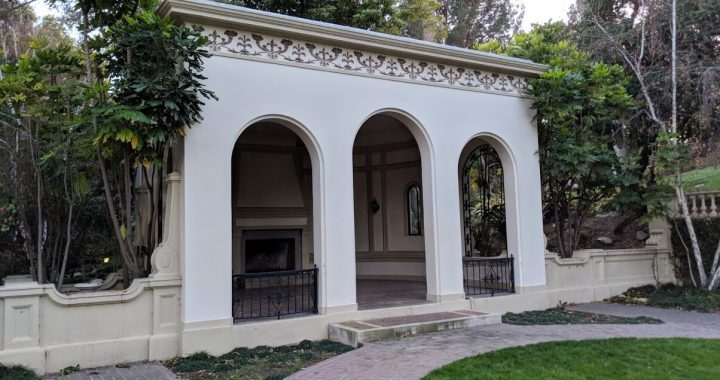


 Seven years after the death of Herbert Armstrong and the high-level organizational reordering within the Worldwide Church of God, there were three types of conferences ongoing in the ministry. The church then was a global organization of more than 120,000 members with many moving parts. The conferences helped keep things organized and moving forward.
Seven years after the death of Herbert Armstrong and the high-level organizational reordering within the Worldwide Church of God, there were three types of conferences ongoing in the ministry. The church then was a global organization of more than 120,000 members with many moving parts. The conferences helped keep things organized and moving forward.
 As recounted earlier, doctrinal rumblings had intensified into spiritually destructive earthquakes of greater and greater magnitude. As one academic later independently chronicled, while Joe Jr and Mike Feazell had initiated and force-fed sweeping changes, the buy-in was by no means positively received or broadly accepted. Concerning church members, “The majority still held to the teachings of Herbert W. Armstrong. The Tkaches [including Mike Feazell] rejected his teachings, but because of their position were able to effectively hijack his Church” (emphasis added). The researcher sadly noted that the increasingly intensive “hijack” soon led to “appalling turmoil…with loyalties, friends, and even families split apart.”
As recounted earlier, doctrinal rumblings had intensified into spiritually destructive earthquakes of greater and greater magnitude. As one academic later independently chronicled, while Joe Jr and Mike Feazell had initiated and force-fed sweeping changes, the buy-in was by no means positively received or broadly accepted. Concerning church members, “The majority still held to the teachings of Herbert W. Armstrong. The Tkaches [including Mike Feazell] rejected his teachings, but because of their position were able to effectively hijack his Church” (emphasis added). The researcher sadly noted that the increasingly intensive “hijack” soon led to “appalling turmoil…with loyalties, friends, and even families split apart.”